PEAK Review
A Harrowing Descent into Competitive Isolation
Some games throw you into chaos with explosions, gunfire, and flashy effects. Others, like PEAK, grip you with silence, tension, and the slow burn of pressure mounting with every second. Developed as a minimalist yet brutally unforgiving vertical climb, PEAK isn't just a test of hand-eye coordination — it's an exploration of obsession. And in a saturated market of flashy platformers and casual-friendly games, PEAK chooses discomfort, frustration, and an almost cruel sense of satisfaction as its weapons of choice.
Gameplay That Doesn’t Care If You’re Having Fun
PEAK has no story, no tutorials, and offers no guidance. It places you in a bleak, atmospheric vertical shaft and expects you to ascend. That's it. But this simplicity is deceptive. The controls are tight, yet brutal. Every leap is a gamble. Every inch gained feels like it could vanish with a single misplaced jump. The game relies heavily on timing, patience, and nerves of steel. Once you fall — and you will fall — you might lose ten seconds of progress or an hour. There’s no safety net here.
This design might alienate casual players, but for veterans of precision platformers, it’s exactly the kind of purity that makes PEAK a standout experience. The game doesn't hold your hand. It pushes you off the ledge and watches what you do next.
Visuals and Audio: Stark but Impactful
PEAK’s art direction is intentionally minimalist. There’s a certain oppressive beauty to its cold, vertical environments. The changing backdrops subtly reflect your progress — from rusted metal depths to windswept, snow-covered heights. The visual shifts aren’t just cosmetic; they contribute to the emotional weight of the climb.
The sound design is equally minimal. There’s no music, only environmental sounds and the occasional echoing wind. Every missed jump is met with an unsettling silence, and every fall echoes like a punch to the chest. It’s a quiet game, but that quiet is heavy. It emphasizes your solitude and the weight of every decision.
Challenge Without Mercy
The difficulty of PEAK is uncompromising. This is not a game to casually play on your lunch break. It's a commitment. There are no shortcuts, no checkpoints, and absolutely no forgiveness. It’s as much a psychological battle as it is a mechanical one. While it might share design DNA with titles like Getting Over It or Jump King, PEAK has a colder, more clinical tone. It doesn’t mock you. It simply doesn’t care.
Despite this, or perhaps because of it, the sense of achievement when mastering a section is immense. You’ll curse the game, take breaks, uninstall it, then find yourself re-downloading it later the same night — because the desire to conquer it never really leaves you.
Free-to-Play or Pay-to-Punish?
PEAK offers a surprisingly generous free demo version that gives a taste of its full brutality. The full version, available for a modest price on Steam, unlocks additional challenges and visual environments. For those wondering whether to play free or commit to the full install, the demo is more than enough to show you what you're in for — if you can survive it.
Mods aren’t officially supported, but players have already begun crafting cosmetic tweaks and control assists. While there are no traditional cheats available in-game, the modding community is experimenting with save-point injectors and visual aids. Still, purists argue that these tools defeat the core appeal of PEAK: complete, raw mastery.
Is PEAK Worth the Climb?
That depends entirely on who you are as a player. If you’re looking for something chill, accessible, or narratively rich, this isn’t the mountain for you. But if you crave high-stakes platforming where failure actually means something, PEAK is a rare gem. It’s not trying to be liked. It’s trying to be conquered. And the satisfaction it delivers to those who manage that feat is unmatched.
How to download PEAK
PEAK is currently available on Steam, where players can download and install both the demo and full versions. The demo is free, giving users a chance to experience the unforgiving climb before committing. While not officially released on other platforms, the game can be played on Mac and Linux using Proton or Wine, and on Android via emulated PC environments like ExaGear or cloud gaming services.
To install, simply download PEAK from Steam, run the installer, and launch from your library. No special permissions or configurations are required beyond standard Steam setup. It does not support controller input, so ensure your keyboard is in good condition.
Minimum requirements for PC are: Windows 7 or newer, 4GB RAM, and integrated graphics capable of OpenGL 3.0. Mac users will need macOS 10.13+, while Android emulation will require at least 3GB RAM and a quad-core CPU.
As of now, cheats and mods are unofficial, but active community efforts have enabled mod support through external loaders. Mods range from visual changes to experimental save states, though these aren’t sanctioned and may affect leaderboard standing.
For users in schools or workplaces, PEAK is not unblocked by default. However, it can be played using browser-based remote desktop platforms or VPN-connected cloud gaming tools. These methods require decent bandwidth and low latency for a responsive experience.
Pros
- Tight, responsive controls that reward precision;
- Visually striking despite minimalism;
- Uninterrupted challenge with no hand-holding;
- Extremely satisfying progression for dedicated players;
- Playable free version available for testing;
- Excellent use of sound and silence to build tension;
Cons
- No checkpoint system — all progress can be lost instantly;
- Not beginner-friendly in any sense;
- Lack of music may feel too stark for some players;


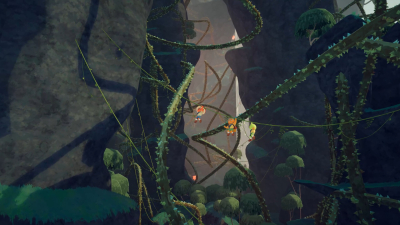
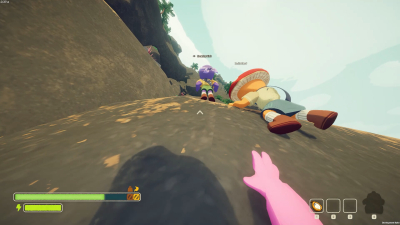
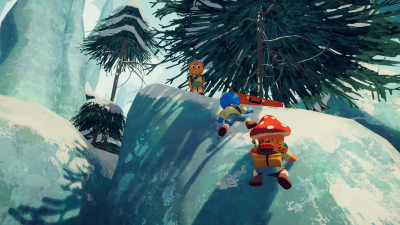
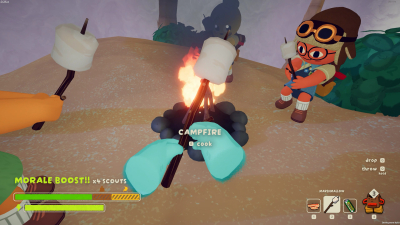
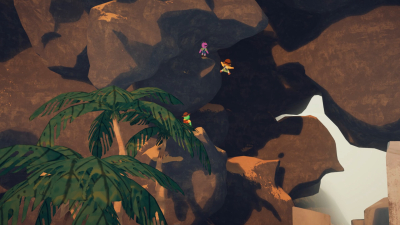















Leave a comment
Your comment is awaiting moderation. We save your draft here
0 Comments